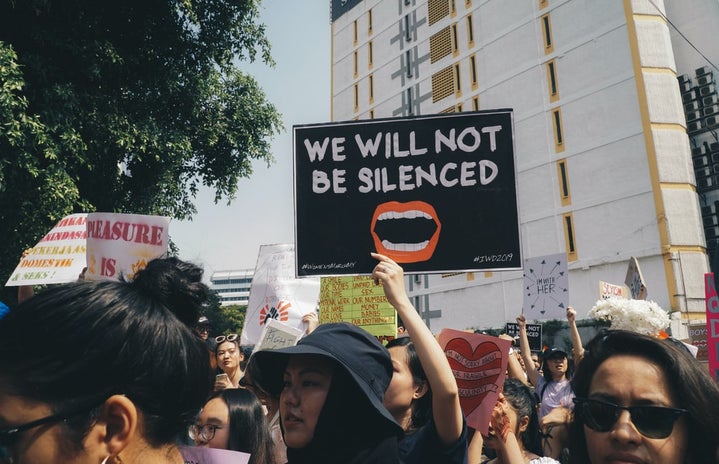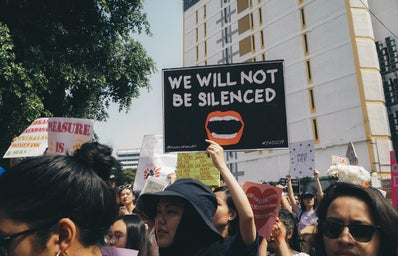What is Title IX?
Title IX states: “No person in the United States shall, on the basis of sex, be excluded from participation in, be denied the benefits of, or be subjected to discrimination under any education program or activity receiving federal financial assistance.” Essentially, Title IX is a law that was passed as part of the Education Amendments. This law protects people from discrimination based on sex in educational institutions and activities that are funded by the federal government.
According to the U.S. Department of Education, as of August 2021, approximately 17,600 local school districts, over 5,000 postsecondary institutions and charter schools, for-profit schools, libraries and museums receive federal assistance and thereby fall under the guidelines for Title IX. Vocational rehabilitation agencies and education agencies of the 50 states, the District of Columbia, and territories of the United States are also included. Some key areas in which Title IX must be upheld for these institutions are: admissions and counseling, financial assistance, treatment of LGBTQIA+ students, and sex-based harrasment (which includes sexual assault, rape and other forms of sexual violence). If someone were to threaten, discriminate against or coerce another person to in order to constrain their rights protected by Title IX, both themselves and their institution could be held liable in court. This also applies to an instance in which someone were to take any of the above actions in order to prevent the implementation of Title IX regulations.
How has Title IX been used in the past?
Many cases involving students and academic institutions have used Title IX for all kinds of discrimination, including discrimination based on religion, national origin, disability, sex and race. Below are court cases involving discrimination on the basis of sex.
- Biediger, et al. v. Quinnipiac University
- In 2010, Quinnipiac University attempted to use competitive cheer as a replacement for the women’s volleyball program. Cheerleading is not recognized by the NCAA as a sport. Several players from the volleyball team, as well as their coach, sued Quinnipiac University to stop them from ending the volleyball program. They argued that Quinnipiac was violating Title IX by discriminating on the basis of sex in the operation of the women’s volleyball program, and the federal courts agreed with them.
- Quinnipiac was required under a consent decree to maintain all existing women’s teams, improve benefits afforded to them, and distribute more scholarships to women athletes.
- In 2010, Quinnipiac University attempted to use competitive cheer as a replacement for the women’s volleyball program. Cheerleading is not recognized by the NCAA as a sport. Several players from the volleyball team, as well as their coach, sued Quinnipiac University to stop them from ending the volleyball program. They argued that Quinnipiac was violating Title IX by discriminating on the basis of sex in the operation of the women’s volleyball program, and the federal courts agreed with them.
- Junior Doe, et al. & United States v. Allentown School District
- On May 5th, 2006, Junior Does filed a complaint against Allentown School District. They alleged that they were sexually assaulted by another student in the bathrooms at Central Elementary School during the 2003-2004 school year. This complaint was amended twice, first to include a sex discrimination claim, and the second was to include allegations that a fifth student was assaulted by another minor party. The DOJ Civil Rights Division alleged that the sexual assaults occurred on at least five separate occasions, and that the district was made aware of each incident immediately after it occurred. Despite this notice, the district failed to take appropriate action, or any action at all in some cases, to prevent the assault from happening again. In addition, the U.S. Department of Justice alleged that adequate sexual harassment policies and procedures were not implemented and adhered to by the district, as is required by federal law. The department argued that if these policies had been in place, the school district could have prevented the continuous harassment of students.
- A consent decree was negotiated and approved on July 31st, 2012. This decree provided for systemic relief, and required that the school district: create and carry out a plan for preventing and addressing sexual harassment, provide sex-based harassment training to administrators, faculty, students, and parents, submit annual compliance reports to the Division, and much more.
- On May 5th, 2006, Junior Does filed a complaint against Allentown School District. They alleged that they were sexually assaulted by another student in the bathrooms at Central Elementary School during the 2003-2004 school year. This complaint was amended twice, first to include a sex discrimination claim, and the second was to include allegations that a fifth student was assaulted by another minor party. The DOJ Civil Rights Division alleged that the sexual assaults occurred on at least five separate occasions, and that the district was made aware of each incident immediately after it occurred. Despite this notice, the district failed to take appropriate action, or any action at all in some cases, to prevent the assault from happening again. In addition, the U.S. Department of Justice alleged that adequate sexual harassment policies and procedures were not implemented and adhered to by the district, as is required by federal law. The department argued that if these policies had been in place, the school district could have prevented the continuous harassment of students.
- T.F. v. Kansas State University and S.W. v. Kansas State University
- In these two cases, the plaintiffs alleged that Kansas State University failed to recognize, respond to or investigate their reports of sexual assault during parties hosted by fraternities recognized by KSU. K-State made motions to dismiss the Title IX claims, but the United States Department of Justice and the United States Attorney’s Office for the District of Kansas filed two statements of interest to help the U.S. District Court for the District of Kansas with assesing the Title IX sexual assault claims.
- In the end, the United States Attorney’s Office advised the court that Title IX obligates federally-funded schools to respond to reports of rape that occurred at off-campus school-recognized fraternity houses and events, as well as determining if a hostile educational environment existed in said spaces. The Attorney’s Office also argued that under the appropriate Title IX standards, Title IX claims by plaintiffs for damages and equitable relief should be allowed to proceed. On March 14th, 2017, the court denied Kansas State University’s motions to dismiss the Title IX claims by T.F. and S.W..
- In these two cases, the plaintiffs alleged that Kansas State University failed to recognize, respond to or investigate their reports of sexual assault during parties hosted by fraternities recognized by KSU. K-State made motions to dismiss the Title IX claims, but the United States Department of Justice and the United States Attorney’s Office for the District of Kansas filed two statements of interest to help the U.S. District Court for the District of Kansas with assesing the Title IX sexual assault claims.
How is Title IX meant to help us today?
According to the U.S. Department of Justice, Title IX was first created to avoid the use of federal resources to support discriminatory practices in education programs, and to provide individual citizens effective protection against those practices. Today, if an academic institution fails to follow the parameters outlined by Title IX, they can be sued in a state or federal court. Schools are also required to make procedures for filing complaints of sex discrimination known to students, have and enforce a policy against sex discrimination, and have a Title IX Coordinator. Inequality and inequity are still prevalent in America’s school system today, but it can be argued that the enactment of Title IX has aided in the effort to dispel imbalances in the education system.


